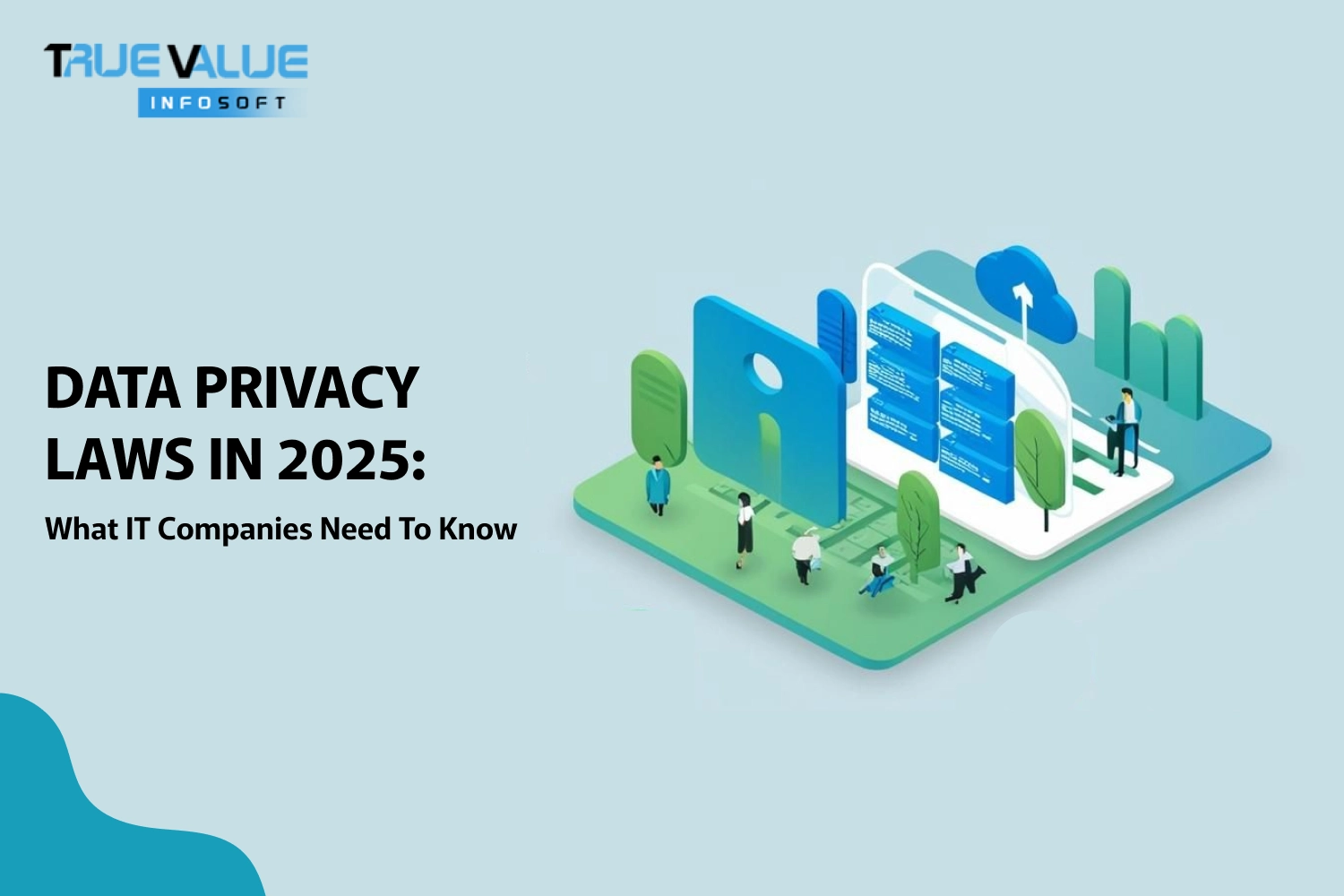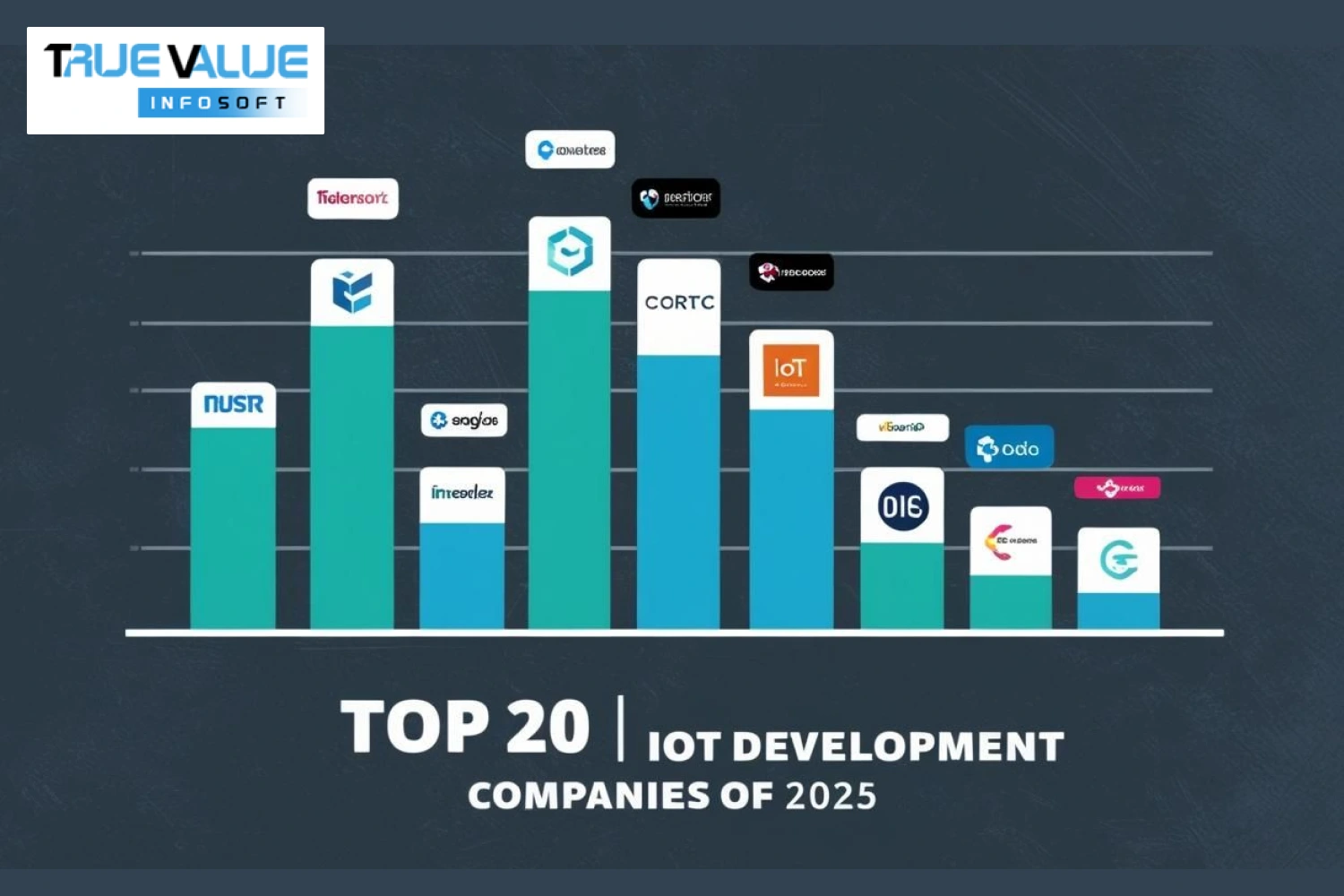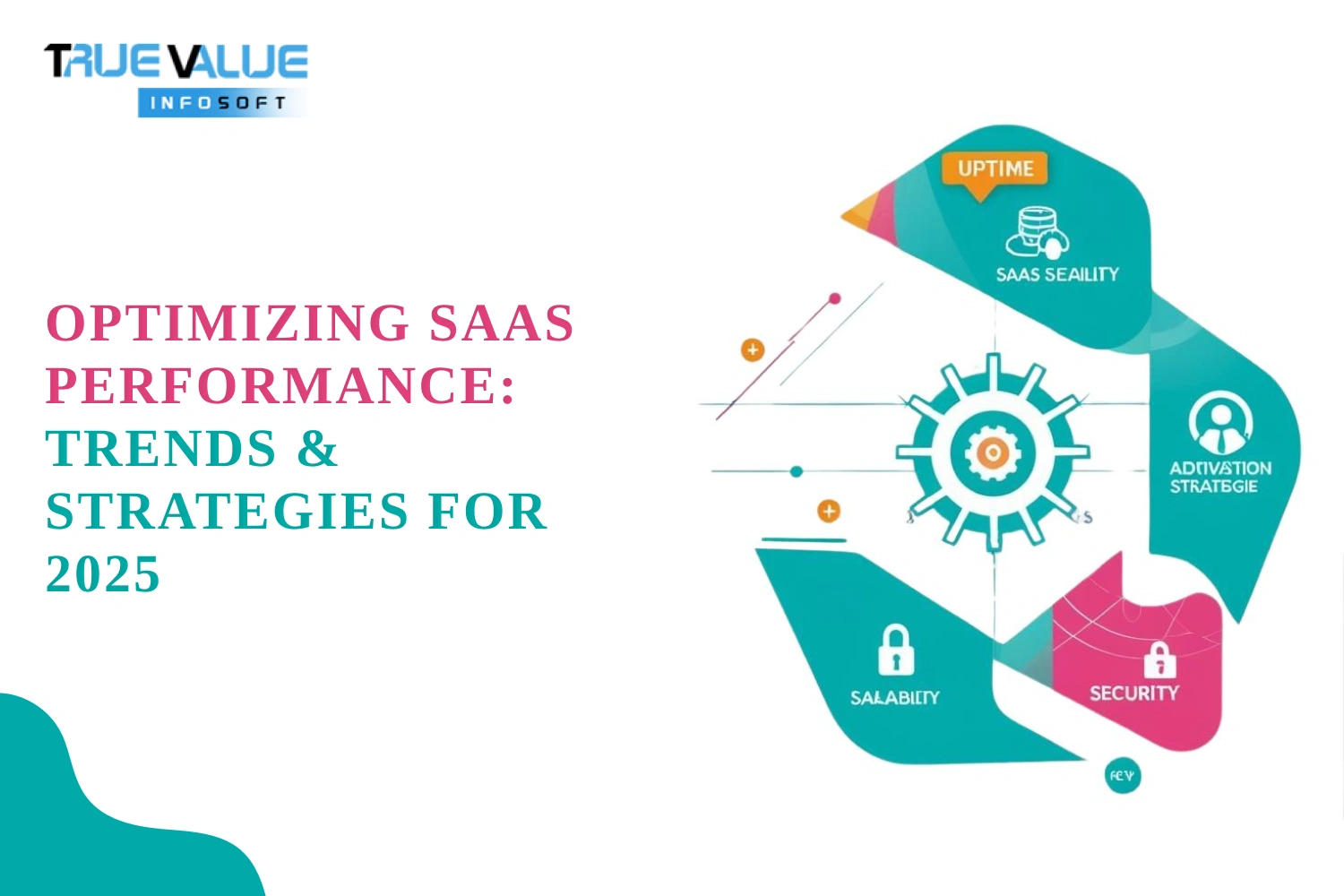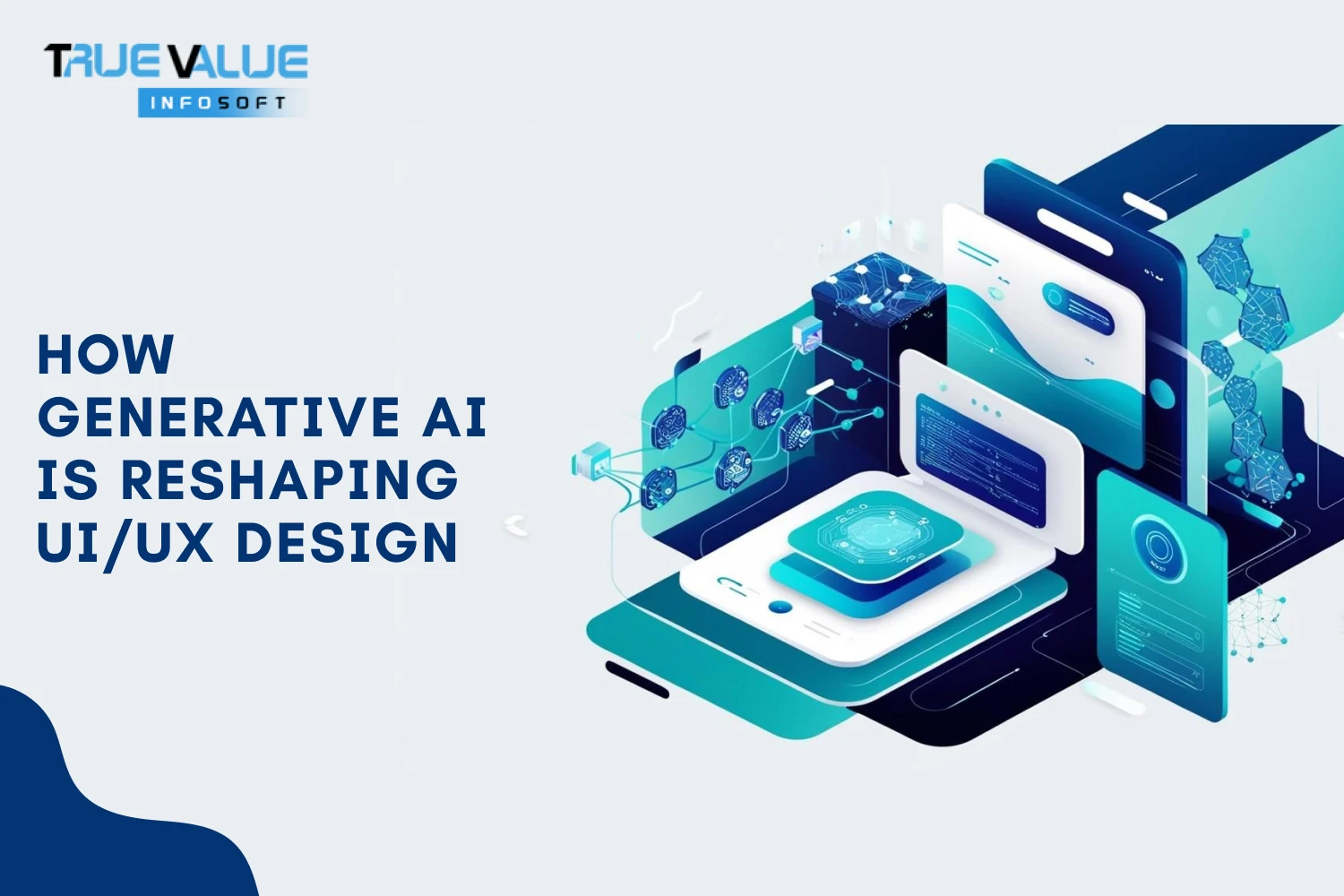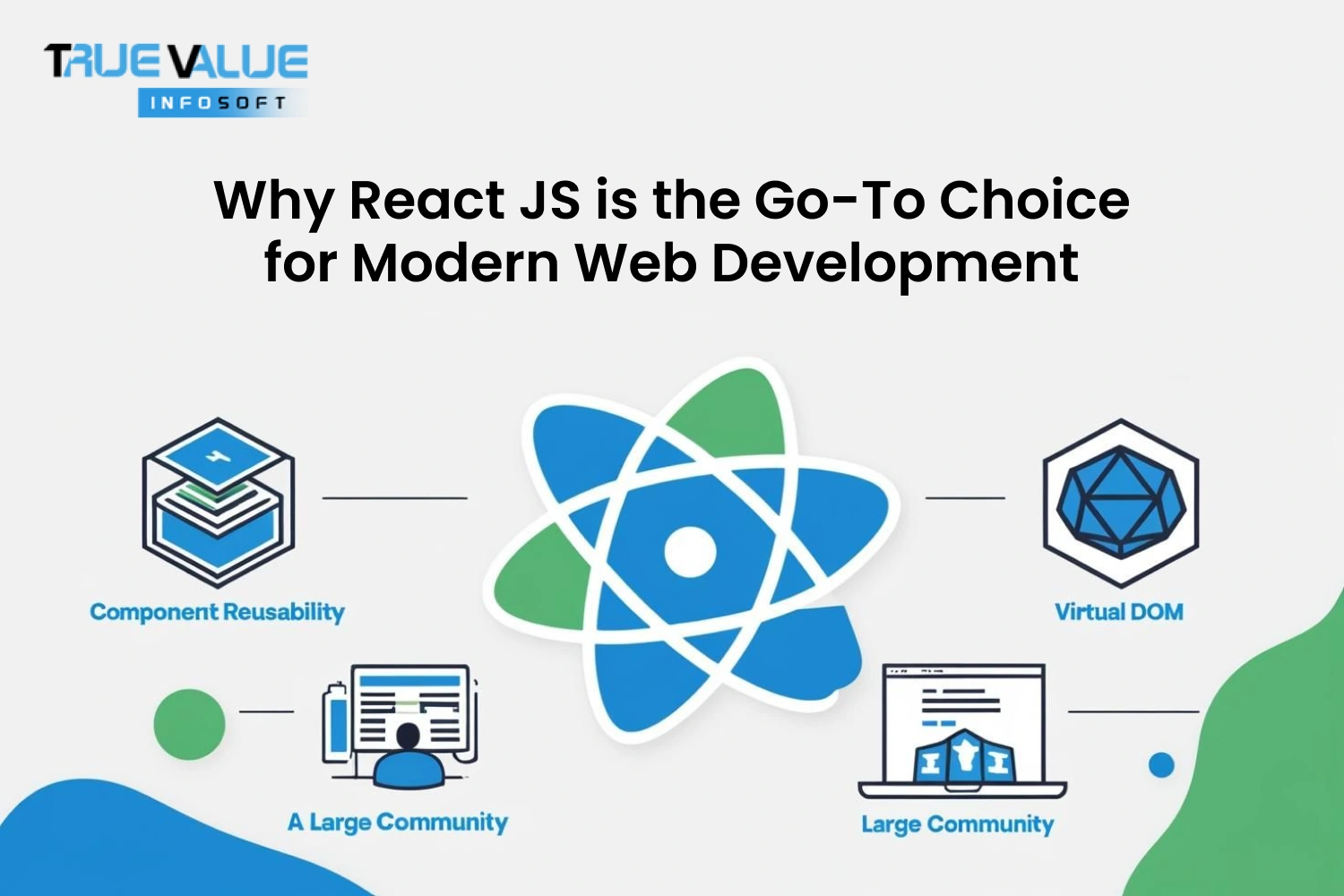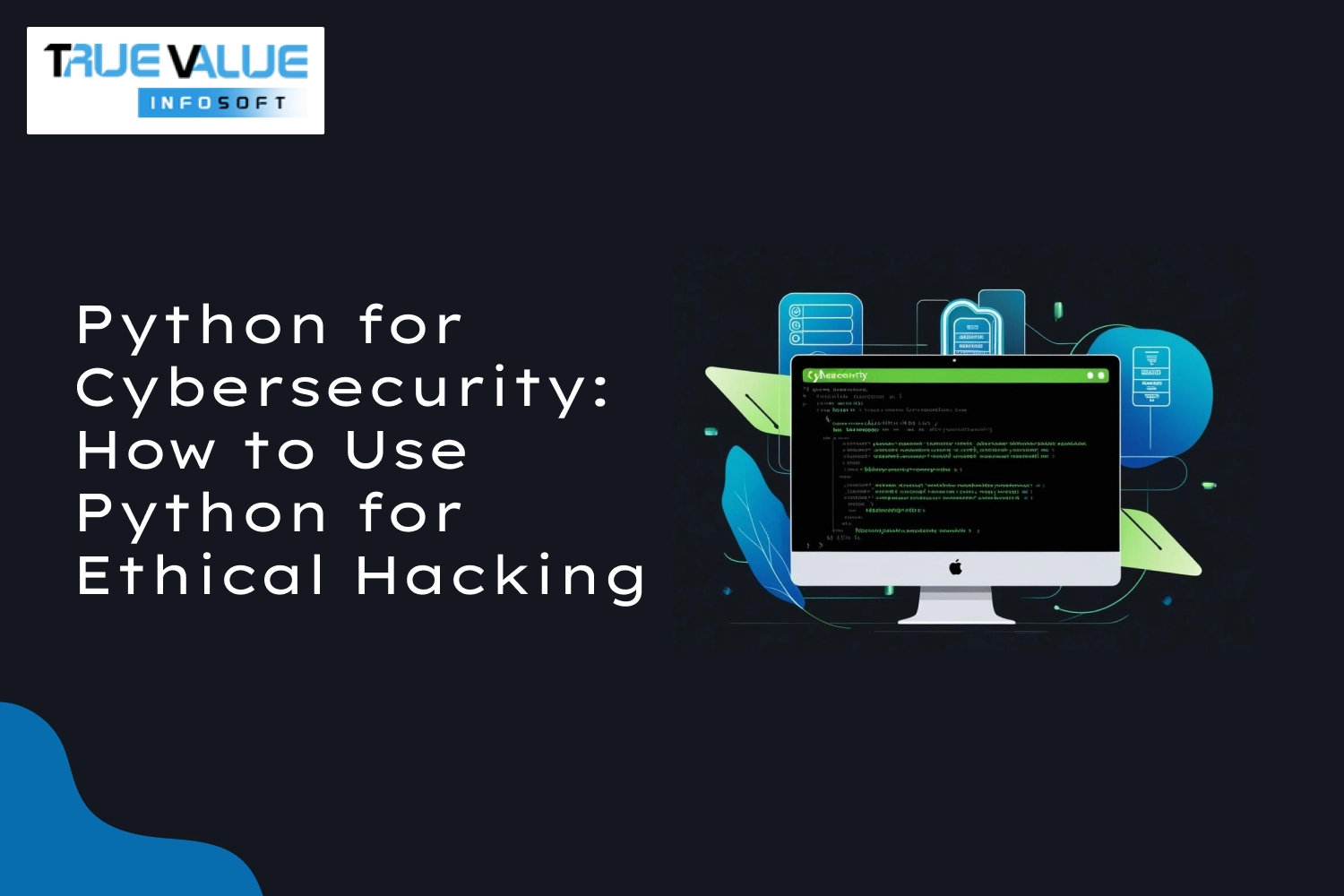Introduction
In the hyper-digital era of 2025, data has become one of the most valuable resources in the world. From personalized advertising to artificial intelligence, data powers innovation and shapes user experiences. However, this digital goldmine comes with a significant responsibility—ensuring its privacy and protection.
Governments and regulatory bodies across the globe have tightened data privacy laws, reshaping how companies collect, store, and manage information. With cyber threats growing more sophisticated and consumers demanding greater transparency, compliance with data privacy regulations is no longer a choice—it’s a business imperative.
For IT companies, especially those in software development, cloud computing, SaaS, and data analytics, navigating the complex legal landscape of data privacy is critical to survival and success. Violations can lead to multi-million-dollar fines, reputation damage, and loss of client trust.
At True Value Infosoft, the best IT company in India, we understand that data privacy isn’t just about ticking boxes—it’s about building digital ecosystems that are secure, ethical, and future-proof. In this comprehensive guide, we explore the evolution of data privacy laws in 2025, the compliance obligations for IT companies, and how to stay ahead in an ever-changing regulatory world.
Why Data Privacy Is More Crucial Than Ever in 2025
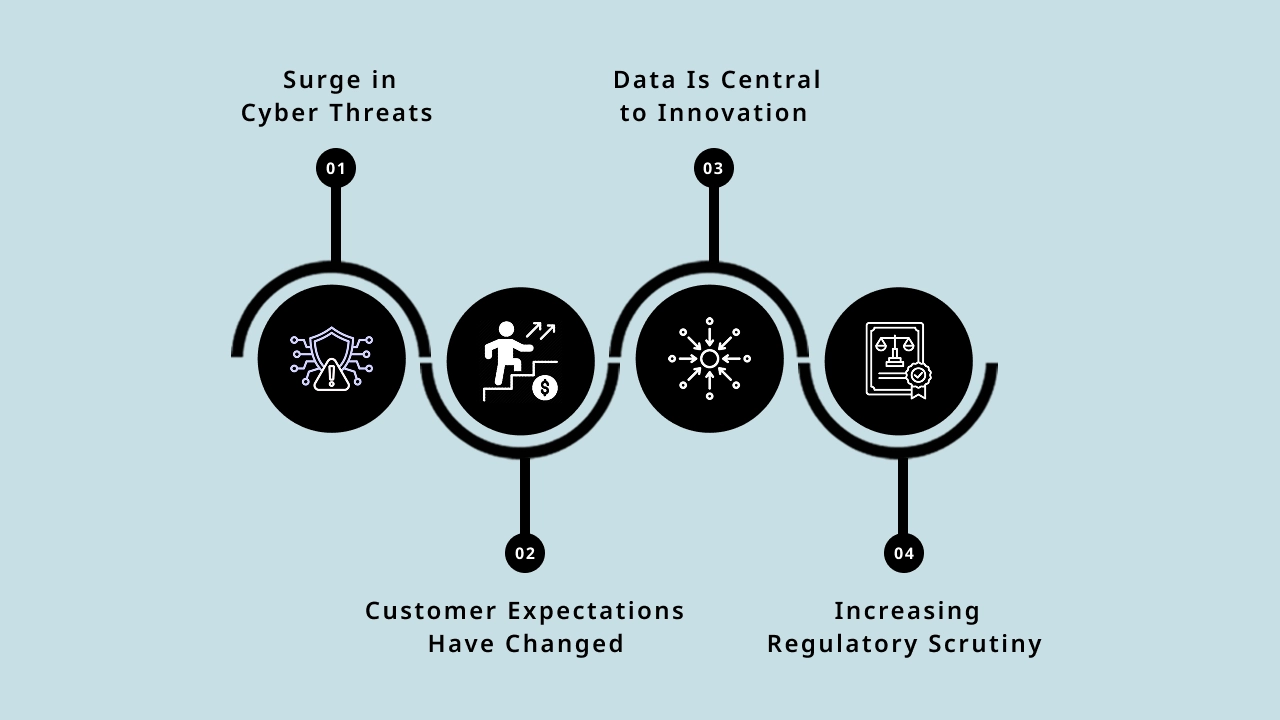
The digital landscape in 2025 is more interconnected than ever before. Technologies like artificial intelligence (AI), Internet of Things (IoT), cloud computing, and blockchain generate massive volumes of data daily. This exponential data growth creates an urgent need for robust data privacy laws and practices.
1. Surge in Cyber Threats
With more endpoints, cloud servers, and interconnected devices, cybercriminals have a broader attack surface. Ransomware, phishing, and insider threats have evolved in complexity. In 2024 alone, data breaches exposed over 12 billion records globally. 2025 is expected to surpass that.
2. Customer Expectations Have Changed
Consumers are more educated about how their data is used. Transparency, consent, and control are now standard expectations. A single privacy misstep can cause massive backlash on social media and loss of trust.
3. Data Is Central to Innovation
Technologies like generative AI and big data analytics rely heavily on data. The misuse or mishandling of sensitive data can not only violate laws but also derail innovation projects.
4. Increasing Regulatory Scrutiny
Regulators are actively enforcing data laws. Fines under GDPR in 2025 have reached record highs, with several multi-national IT companies being penalized. Compliance is no longer a one-time audit but a continuous responsibility.
Key Global Data Privacy Laws in 2025
Let’s explore the world’s leading data privacy laws and their 2025 updates that IT companies need to understand.
1. GDPR (Europe) – The Gold Standard
The General Data Protection Regulation (GDPR) remains the most influential privacy law. In 2025, updates include:
- AI-Specific Guidelines: GDPR now includes detailed requirements for AI transparency and explainability.
- Cross-Border Data Transfers: New restrictions and data localization for high-risk data categories.
- Stronger Consent Requirements: Users must actively re-consent every 12 months for sensitive data.
2. CCPA/CPRA (California, USA)
The California Consumer Privacy Act (CCPA), strengthened by the California Privacy Rights Act (CPRA), includes:
- Automated Decision-Making Disclosures
- Right to Limit Use of Sensitive Personal Information
- Annual Privacy Risk Assessments for companies handling data of more than 100,000 users.
3. India’s Digital Personal Data Protection (DPDP) Act
India’s long-awaited DPDP Act came into effect in 2024. Key features for 2025:
- Data Fiduciaries must appoint a DPO and implement purpose limitation.
- Cross-border Data Transfers permitted only to countries whitelisted by the Indian government.
- User Rights: Right to correction, grievance redressal, and data portability.
4. China’s PIPL – Personal Information Protection Law
China’s PIPL enforces strict data protection including:
- Data Localization for critical personal data.
- Separate Consent for sensitive and cross-border transfers.
- Heavy Penalties: Up to 5% of global revenue.
5. Other Significant Laws
- Brazil's LGPD: Similar to GDPR with 2025 updates on children’s data protection.
- Canada's CPPA: Emphasizes algorithmic transparency and de-identification standards.
- Australia’s Privacy Act Reform: Includes privacy impact assessments and mandatory breach notifications.
6. Quick Comparison Table
| Law | Region | Data Transfer Limits | Consent Rules | Max Penalty |
|---|---|---|---|---|
| GDPR | EU | Strict | Explicit | €20 million or 4% of revenue |
| DPDP | India | Whitelisted countries | Clear, concise | ₹250 Cr |
| PIPL | China | Mandatory localization | Separate | 5% of global revenue |
| CPRA | California | N/A | Sensitive-specific | $7,500 per violation |
Compliance Strategies for IT Companies
Compliance isn’t a one-time process—it’s an organizational culture shift. Here’s how IT companies can build a privacy-centric approach:
1. Create a Privacy-First Culture
- Regular privacy training for all employees.
- Embed privacy into product development (Privacy by Design).
- Appoint a Data Protection Officer (DPO) to oversee compliance.
2. Conduct Data Mapping and Classification
- Understand what data you collect, from where, and why.
- Use classification tools to separate personal, sensitive, and anonymized data.
3. Consent Management Systems
- Provide clear opt-ins.
- Maintain consent logs.
- Enable users to withdraw consent easily.
4. Secure Data Storage & Processing
- Use encryption at rest and in transit.
- Implement role-based access control (RBAC).
- Regularly audit data flows and access logs.
5. Third-Party Risk Management
- Assess vendors for privacy compliance.
- Include data protection clauses in contracts.
- Conduct regular vendor audits.
Technology and Tools for Privacy Compliance
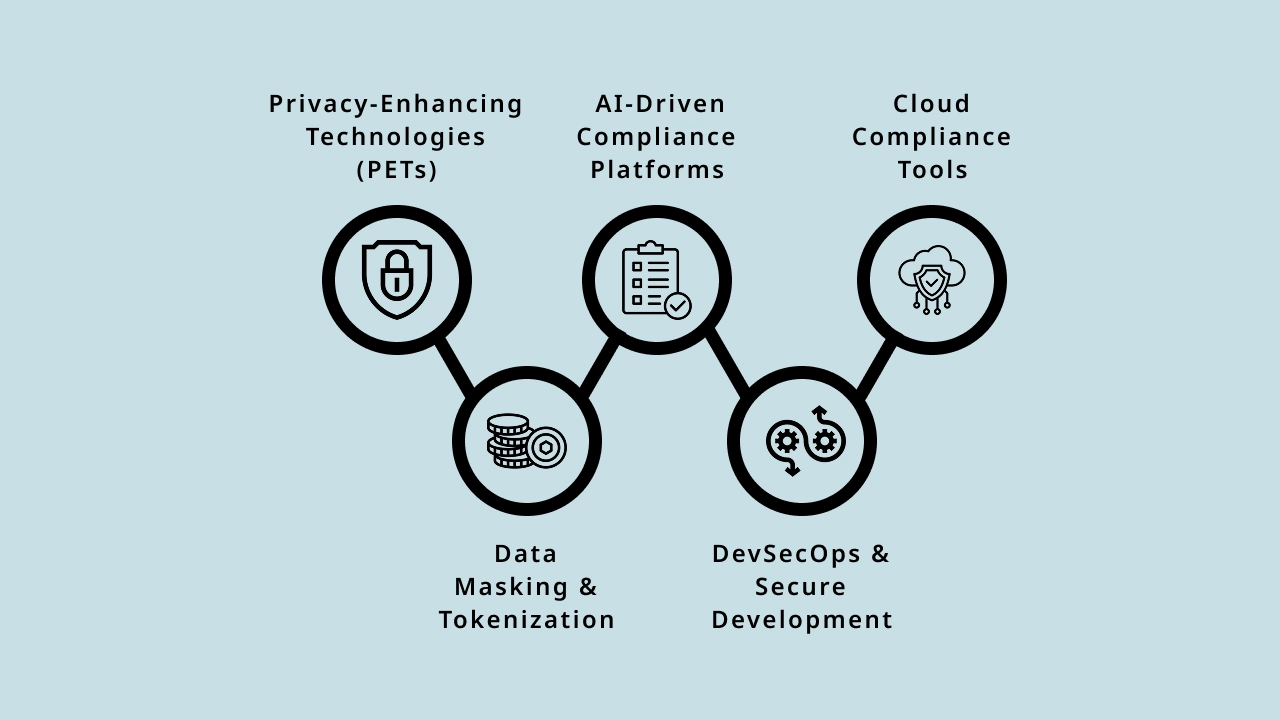
Modern problems need modern solutions. Here are top technologies that help ensure compliance:
1. Privacy-Enhancing Technologies (PETs)
- Differential Privacy
- Homomorphic Encryption
- Federated Learning – Train AI without exposing user data.
2. Data Masking & Tokenization
Protect sensitive data in testing environments or third-party tools without exposing real information.
3. AI-Driven Compliance Platforms
Tools like OneTrust, BigID, and TrustArc automate:
- Consent management
- Risk assessments
- Regulatory reporting
4. DevSecOps & Secure Development
Incorporate security testing (SAST/DAST) directly into the CI/CD pipeline to catch issues early.
5. Cloud Compliance Tools
AWS, Azure, and GCP offer built-in tools for:
- Audit trails
- Compliance monitoring
- Region-based storage enforcement
Data Privacy Challenges in 2025
Despite advances, IT companies face ongoing challenges:
1. Balancing Personalization vs Privacy
Using data to personalize user experience while respecting consent boundaries remains difficult.
2. Regulatory Complexity
Different jurisdictions have conflicting rules. Harmonizing compliance is a logistical headache.
3. Employee Awareness
Even with tools in place, human error remains a top threat. Regular upskilling is essential.
4. Real-Time Data Collection
Streaming data from wearables, vehicles, and IoT devices creates new vulnerabilities.
Case Studies: Companies Leading in Compliance
1. Apple

Apple has set industry benchmarks with on-device processing, App Tracking Transparency (ATT), and user-focused privacy labels.
2. Microsoft
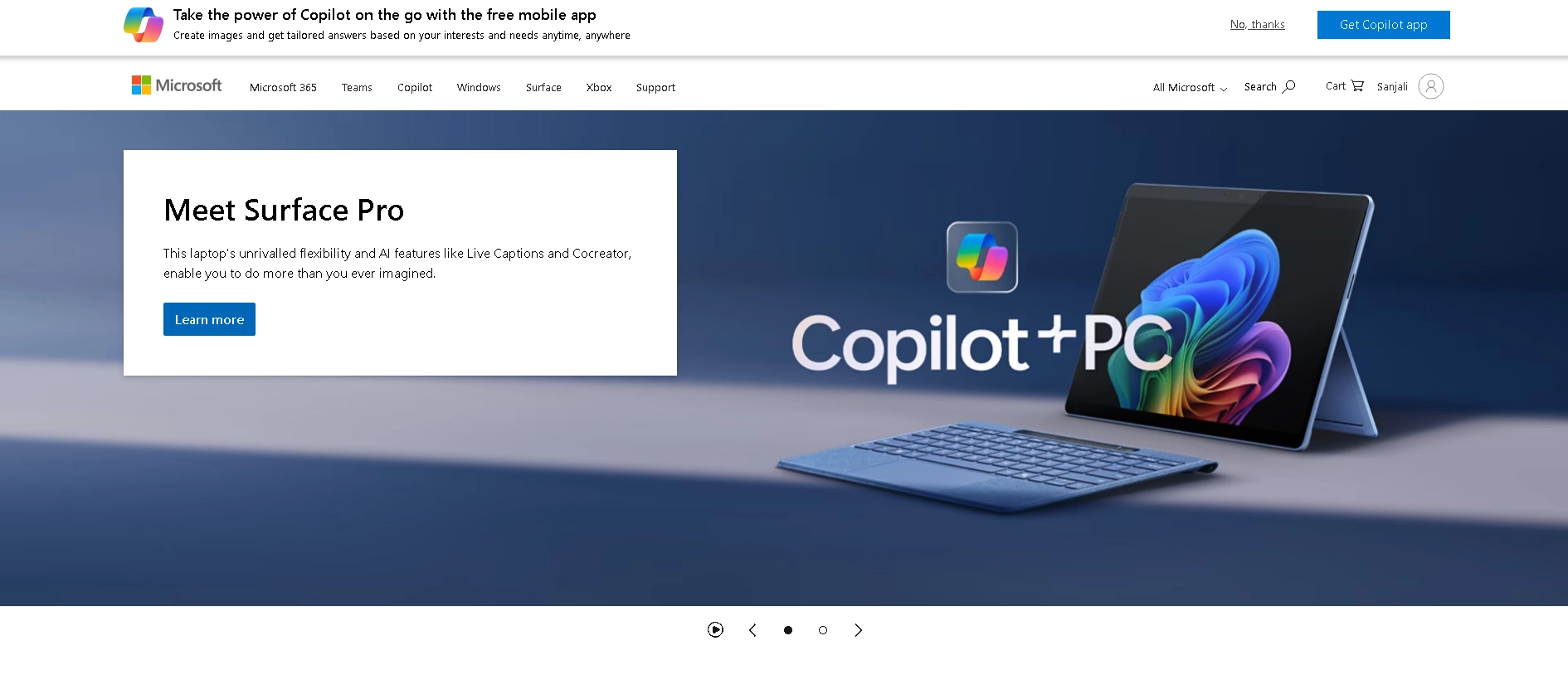
Through its Microsoft Priva solution, the company automates compliance and offers enterprise-grade data governance tools.
3. True Value Infosoft
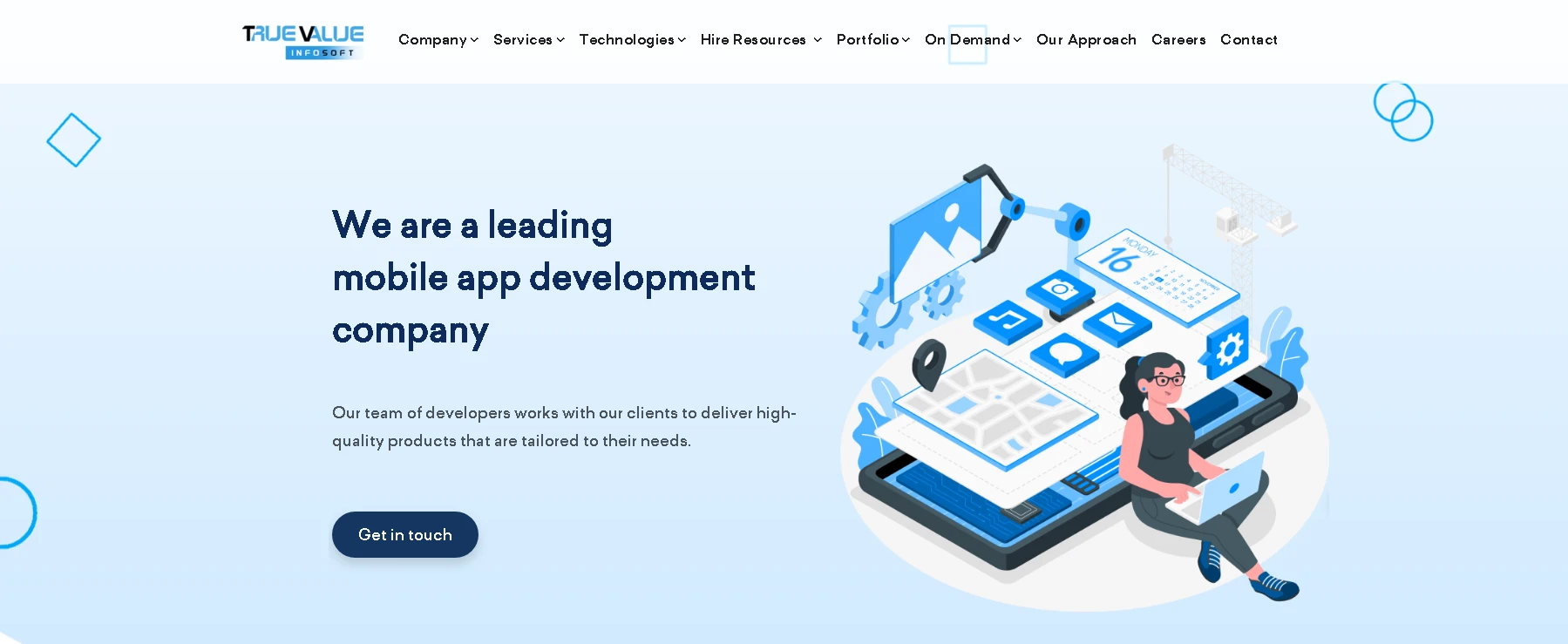
At True Value Infosoft, we embed privacy into the DNA of every project. Our approach includes:
- DPO-led risk audits
- Zero-trust security frameworks
- Custom compliance dashboards for clients
- Client advisory on international data transfer regulations
The Future of Data Privacy Laws: Trends to Watch
1. AI-Specific Regulations
By 2025, AI-generated data must be explainable. Black-box models are under scrutiny.
2. Global Privacy Frameworks
Talks are underway for a UN-backed privacy framework to streamline international data transfers.
3. Blockchain and Self-Sovereign Identity (SSI)
Decentralized data storage and user-controlled identity management are gaining traction.
4. Automated Audits and Compliance Bots
AI-powered agents are now capable of conducting real-time compliance checks across entire infrastructures.
How True Value Infosoft Ensures Client Compliance
At True Value Infosoft, we build products with privacy by design. Our process includes:
- Data flow audits before development
- Customizable consent and preference centers
- Integration with third-party privacy tools (OneTrust, Osano)
- AI/ML compliance modules for risk monitoring
- Regular legal consultations on cross-border data processing
- DPO support and documentation for enterprise clients
We help clients stay compliant in India and beyond — turning privacy into a business enabler.
Conclusion
In the fast-moving world of technology, data privacy is the backbone of user trust and legal security. The evolving regulations in 2025 are not roadblocks—they are blueprints for better, safer digital ecosystems.
For IT companies, embracing a proactive, technology-driven approach to compliance isn’t just about avoiding penalties—it’s about staying relevant and resilient.
At True Value Infosoft, we go beyond compliance. We help you build secure, scalable, and privacy-respecting solutions that stand the test of time and regulation. Ready to future-proof your business? Let’s make it happen—securely.
FAQs
Penalties vary by jurisdiction. GDPR fines can reach €20 million or 4% of annual turnover, while India’s DPDP Act allows penalties up to ₹250 crore for major violations.
By using automated compliance tools, adopting privacy-by-design principles, and partnering with legal advisors or firms like True Value Infosoft that offer managed compliance services.
A DPO oversees data handling practices, ensures regulatory compliance, conducts audits, and serves as a liaison between the company and regulatory bodies.
Yes, tools like OneTrust, TrustArc, and BigID help automate policy enforcement, consent tracking, and risk management.
Yes, but with restrictions. Most laws require data localization or special safeguards like Standard Contractual Clauses (SCCs) and adequacy decisions.
